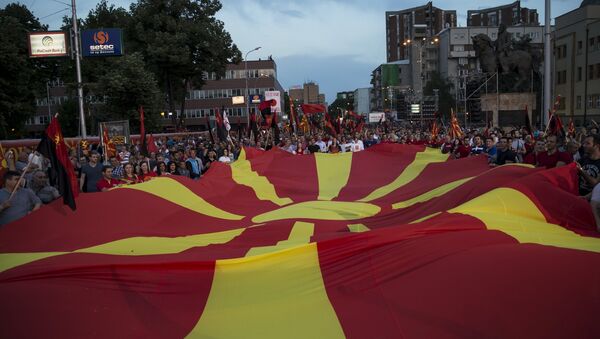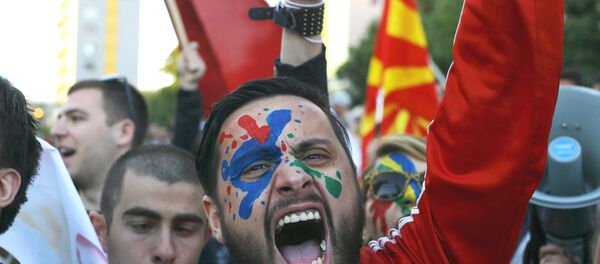The political crisis in Macedonia erupted in spring 2014 when Zoran Zaev, President of the opposition Social Democratic Union of Macedonia, accused the government of a fraud at the April parliament election.
The crisis deepened in 2015 after allegations that the government of then-Prime Minister Nikola Gruevski had illegally wiretapped opposition politicians, judges, and other members of the country’s political elite.
The involvement of Western leaders and diplomats in the Macedonian crisis is a possible a sign that the crisis is more than a domestic affair and has a geopolitical bias, an article in the Russian analytical magazine Expert read.
In 2015, the crisis erupted amid the refusal of the Macedonian government to support anti-Russian sanctions. Skopje also supported the construction of the Turkish Stream pipeline, a project opposed by many in the West.
Recently, Moscow and Ankara started normalization of relations after a Turkish jet shot down a Russian bomber in Syria last year. The normalization presumes that the construction of the pipeline will be resumed. These developments would soon affect the crisis in Macedonia, the author wrote.
Over the past decades, Macedonia was not in the sphere of Moscow’s interests and as a result has gone under Washington’s influence.
Nevertheless, a deepening political crisis may be in the interests of the US as a way to reduce Russia’s influence in the regions, especially amid tensions between Moscow and the West, the article read.
Commenting on the Macedonian crisis in 2015, Russian Foreign Minister Sergei Lavrov noted that political turmoil broke out at a time when Skopje made certain steps toward closer ties with Moscow.
"I cannot judge with a final definition, but objectively it turns out that these events in Macedonia are developing on the backdrop of the Macedonian authorities’ refusal to join in the sanction policy against Russia, as well as on the backdrop of its active support that Skopje showed in regard to the planned construction of the Turkish Stream gas pipeline, which many in Brussels and those overseas are against," Lavrov said during a press conference in Belgrade in May 2015.
The author assumed that despite the fact that the Macedonian crisis has a number of domestic reasons there are signs that Washington was also involved in the situation.
Representatives of the ruling Democratic Party for Macedonian National Unity (VMRO DPMNE) have repeatedly blamed George Soros and his Open Society Foundation for the turmoil. In fact, many activists involved in protests were affiliated with the Macedonian branch of the OSF.
Recently, a number of OSF inner documents were stolen by hackers and published on the Internet. In particular, the papers describe the strategy of mass protests in Macedonia.
Last year, the budget of the Macedonian branch of the OSF was €5.3 million, and a total of €100 million was spent on activities in Macedonia since it started working in the country 20 years ago, according to the leaked papers.
However, it is too early to name those who would benefit from the Macedonian turmoil. But it is becoming clear that now Macedonia is a concentration point for the interests of many Western players. They seem to have a common goal – to isolate this geopolitically important region from Russia’s influence, the author concluded.




